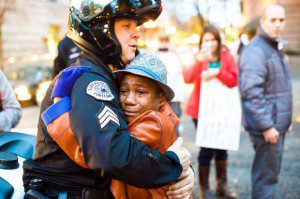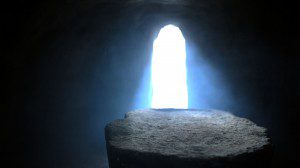 The biography of Russ Moore, the conference’s second speaker:
The biography of Russ Moore, the conference’s second speaker:
“Russell D. Moore has served as the Senior Vice President for Academic Administration and Dean of the School of Theology at Southern Seminary since January of 2004. Dr. Moore is also a preaching pastor at Highview Baptist Church in Louisville, where he ministers weekly.
Dr. Moore writes and speaks frequently on topics ranging from the Kingdom of God to the mission of adoption to a theology of country music. He is a senior editor of Touchstone: A Journal of Mere Christianity. He has written books such as The Kingdom of Christ: The New Evangelical Perspective and a forthcoming volume, Adopted for Life: The Priority of Adoption for Christian Families and Churches. Prior to entering the ministry, he was an aide to U.S. Congressman Gene Taylor.”
such as The Kingdom of Christ: The New Evangelical Perspective and a forthcoming volume, Adopted for Life: The Priority of Adoption for Christian Families and Churches. Prior to entering the ministry, he was an aide to U.S. Congressman Gene Taylor.”
Just before Moore’s talk, Dr. David Dockery, president of Union University, warmly welcomed the conference attendees. Dockery spoke of his enthusiasm for George, whom he called “an honorary graduate of this institution.” He spoke briefly of Union’s recent past, noting the challenge last year’s tornado posed to the campus, and testifying eloquently to the school’s fierce determination to rebuild itself for the glory of God.
Though he did not speak for long, Dr. Dockery demonstrated the grace, deep intelligence, and piety that has made him a treasured leader in the Southern Baptist community and the evangelical world beyond it. While leading a major institution, one known to some as the “Wheaton of the South,” Dockery never fails to evince genuine humility and a relentless desire to serve the Lord. With many others, I count him a Christian leader to emulate and learn from; his leadership of the school in the wake of last year’s tornado was nothing short of heroic. Dr. Dockery closed his welcome by cueing up a high-quality ten-minute video on Union’s rebuilding process, which I hope to have up in coming days.
The following represents my summation of Moore’s address on “Of Sacraments and Sawdust: Toward the Future of Evangelical-Catholic Public Engagement.” All errors are my intellectual property, and all insights are Dr. Moore’s.
Introduction
Moore first shared a story of conversation with George when he first met him and the two had a conversation about evangelical-Catholic interaction. Moore noted his personal background: product of evangelicals and Catholics together. Literally. His mother was a Catholic, his father an evangelical. Also, he watched how professing Catholics and Baptists alike lived licentiously—they liked Mardi Gras, but they never seemed to care for Easter and its deeper significance.
Moore then reflected on the microcosmic nature of his initial conversation with George. Evangelicals and Catholics Together, Promise Keepers, and other groups and movements have all recently tackled the question of evangelical-Catholic cooperation. In addition, evangelicals watch The Passion of the Christ and read Peter Kreeft. Catholics watch Veggie Tales. On a grassroots level, Catholics and evangelicals are not separated from one another as they once were.
Key Idea
Moore’s argument: as the conversation continues, it could be that it is less organized but more significant. The most critical thing that can happen in the future is for each side to learn from the other side what they need to know about themselves. There is a crypto-Protestantism in Catholicism on matters like abortion; for Protestants, it is time to ask if we have overreacted to Catholicism in a manner that detracts from our own traditions.
Renewal of Apostolic Proclamation
First aspect of this: hope for the renewal of apostolic proclamation. Some in ECT and elsewhere argued that the two camps are united not by theology but by social concerns. Moore contended that there is in fact theological commonality in some areas. Carl Henry, preeminent theologian of the neo-evangelicals, argued that evangelicals were in his day surrendering cultural engagement to Catholics due to a deficient worldview and high likelihood of splintering whenever theological controversy arose.
Natural law not just a critique of harmful ideas, but is a positive means of constructing social order that guards the good. Some evangelicals would take issue with the breadth of natural law advocated by George; but all evangelicals would, to some extent, agree with George that there is a point of common connection between Christians and nonChristians. For example, the Apostle Paul asked questions of religious leaders, as did the Lord Himself. Natural law can provide a basis for this sort of engagement. But Professor George’s view of natural law is closely tied to a Christian belief system. Even in Making Men Moral, George shows how religious liberty as a good is consistent with a Roman Catholic view of religion. This reminds all Christians of whatever stripe that it is essential to engage the basic questions of life. The example of WA Criswell, a very conservative Southern Baptist, publicly stating that human life begins at breath is a prime example of this.
What does it mean to be a human being, and to reflect the image of God, and to speak of oneself as a self? These are crucial questions that George is engaging.
The evangelical and Catholic project is today more and less controversial. Many saw it twenty years ago as a doctrinal downgrade. Today, however, social issues are influencing the theological issues. Few evangelicals today would say that the Pope is the Anti-Christ, though Bill Maher and secularists might. On the other hand, Sean Hannity might be invited to an evangelical conference. Moore expressed moral equivocation about this, but underscored its significance.
A Revelatory Word and its Importance
The issue of a revelatory Word must be reclaimed in the current mode. This does not refer to our direct mode of public discourse, but instead relates to our pulpit leadership and ecclesial discipleship. In addition, evangelicals need to not shape their interpretations of certain biblical texts around a fear of Catholicism. For example: Christ telling Peter that he is the rock of the church (Matthew 16:16-18). We should not spend more time saying what the passage is not about than what it is about. Also, there is in some Catholic thinkers great insight about the Bible and faith. Benedict XVI has written about how some Christians read the Bible as if it is Anti-Christ, believing that if one reads it with a pre-Enlightenment, miracle-trusting faith, one is reading it wrongly.
Both evangelicals and Catholics will in coming days be dismissed as “premodern” and fundamentalist. Evangelicals can learn a necessary lesson by observing how the Catholic religion is connected with tradition, unlike so many evangelicals. In addition, Catholics are not caught up on prooftexts (as seen in the evangelical gender wars), but have valuable reference to a tradition that allows the full voice of Scripture to speak and the exaltation of Christ in the wider panorama of biblical texts. Finally, evangelicals can learn what “sola fide” truly means. It does not refer simply to a one-time confession. This ties in with the time-honored question, “Do you believe Catholics are saved?” Moore noted that he can’t necessarily answer with certainty the question, “Do you believe Southern Baptists are saved?” People of both traditions need apostolic formation for the inculcation of robust theological identity.
Renewal of Ecclesial Incarnation
We also need ecclesial incarnation. Moore quoted Neuhaus as saying his desire for the ECT dialogue was “full communion,” or the full evangelical recognition of the Pope’s authority over the one true church. This statement made Moore realize that there are precious few evangelicals who could answer this statement on biblical grounds. Too many evangelicals see the church as a mere list of regenerated people. Evangelicals can learn from Roman Catholics how to see the church as not merely community, but authority. The church bears the authoritative stamp of the Holy Spirit and the “keys of the kingdom” (Matthew 18:18). When it speaks rightly, the church speaks with the authority of Christ Himself. If evangelicals are to talk with Catholics, we must abandon a hyper-Protestant, emotionally entrepreneurial view of the church, in which our movement is led by parachurch groups and their figureheads. In most evangelical churches, we speak so strongly against the Catholics that people wonder why we perform the ordinances at all! This must change.
Involved conversation with Catholics will make the dialogue about the church more difficult, but also more rewarding. Each side will seek to convince the other of its position, but this will ultimately benefit both.
Renewal of Cultural Marginalization
We need, finally, a renewal of cultural marginalization. At the beginning of the twentieth, both groups were marginalized: ethnic, living in flyover country, middle-class or lower. The election of JFK for the Catholics and Jimmy Carter for the evangelicals changed all this and ushered each group, to some extent, into the mainstream. There is now a danger that each group will try to keep up with cultural elites. This will mean the loss of prophetic witness to the broader culture. If evangelicals and Catholics are going to avoid being shaped by the ambient culture, they will need to speak to Hispanics and to other groups that seem to be out of step with higher culture.
The fact that evangelicals need a prooftext to stand for higher matters is not promising. We need to remember that little Catholic ladies challenged evangelicals in the 1960s and 70s to consider when life began. They were way ahead of us in thinking in worldview categories; this means that we think about things like careerism, daycare, and bioethics today. We cannot spend the rest of our lives rebelling against caricatures of the other group.
Conclusion
We must show our congregations what it means to have a deeper life. This will mean that evangelicals and Catholics look more strange to the culture. But this will also mean that we will have something to say to a culture that is always Mardi Gras and never Easter.
My Take
Russ Moore is an artist with words. He is highly skilled at grabbing your attention, throwing several chunky theological, philosophical and biblical ideas into the mix, and then landing his talk on a dime. This talk was emblematic of his abilities. He received extended applause at the conclusion of his talk, and his “Mardi Gras and Easter” angle was one of the more memorable I’ve heard. Simply elegant.
His remarks were ecumenical in the best sense of the word. They did not proceed from weak-kneed academic capitulation, but from his core belief. Yet from his worldview (identified a number of times as “Reformed” and “Southern Baptist” and “evangelical”), he spoke with clarity and charity on the need for very careful and thoughtful evangelical-Catholic dialogue. This is an important topic, particularly as many of us in the younger generation strive to figure out how exactly to handle Catholics–we’re pretty sure we don’t want to namecall like previous generations, but we also don’t know where the balance is struck between orthodoxy and generosity.
Moore cited Robby George a number of times as an exemplar of the kind of honest, forthright, theologically-driven thinker that the evangelical-Catholic dialogue desperately needs. The world, furthermore, needs this kind of person, whether evangelical or Catholic, the kind who doesn’t shift his opinion with every fresh breeze of cultural thought. Moore himself is this kind of thinker and leader, one should note.
I found Moore’s talk intellectually stimulating and personally challenging. Though he left extensive interaction with natural law theory to others, his call for prophetic, “marginalized” Christian witness resounded with me. It is important, of course, that we find Christians who can enter the upper echelons of society as witnesses for Christ (like Wilberforce, for example). With that said, Russ Moore is one of the most exciting Southern Baptist leaders out there, but is also poised for greater leadership of the broader evangelical movement itself. This talk made this clear.











